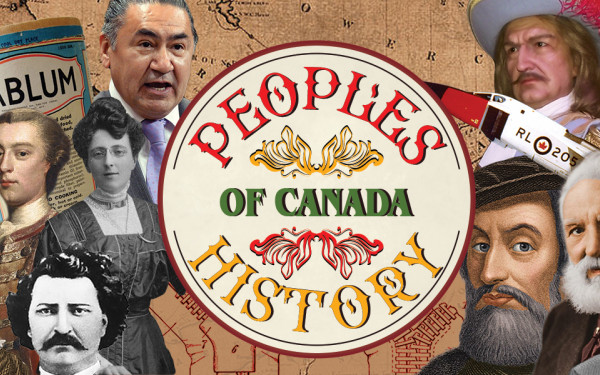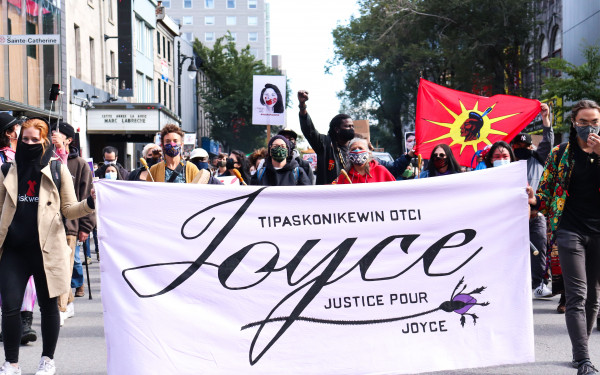Editorial: The New Provincial Government Has a Bad Track Record With Minorities
The CAQ Doesn’t Care About Indigenous Peoples and Uses Divisive Policies
The Link condemns the erasure of Indigenous issues during the provincial election campaign.
Last Thursday was the 13th annual vigil for missing and murdered Indigenous women; a march to recognize issues surrounding Indigenous peoples in this city.
A few of us at The Link attended the event, along with many others who brought up a key issue for Montrealers and Quebecers: Indigenous rights were largely ignored during the provincial elections that just passed.
We covered three of the provincial debates in the lead up to election day: The English-language debate, the debate on student issues held at Concordia, and the education debate at Université du Québec à Montréal. We weren’t surprised, but none the less disappointed to see a lack of dialogue about Indigenous issues at all three.
Missing and murdered Indigenous women and girls continue to be ignored as the provincial government neglects to give priority to their cases.
There continues to be scores of Indigenous communities in Canada, including right here in Quebec, that don’t have access to clean drinking water.
Despite the federal government’s efforts instilled last year, parts of the Kitigan Zibi community, a First Nations Reserve located in the Outaouais region, have not had clean drinking water since 1999.
But according to the Coalition Avenir Québec passing a “secular” charter for those “who wield coercive state power,” including teachers and police officers, is more important.
Blatant systemic racism affects all visible minorities, including Indigenous peoples. It influences their everyday lives, in their access to healthcare and their ability to find steady jobs.
Québec Solidaire was the only party with an Indigenous candidate: Alisha Tukkiapik, an Inuit in the Ungava circonscription. She didn’t get elected. Despite this, the CAQ does not intend to hold another inquiry into systemic racism.
The CAQ ran with a platform that has little mention of rights and issues regarding Indigenous peoples. Though Francois Legault did commit to signing the United Nations Declaration on the Rights of Indigenous Peoples, a declaration providing framework for “minimum standards for the survival, dignity and well-being of the Indigenous peoples of the world.” This declaration has been signed by Montreal’s city council, and in Canada at the federal level.
The party also promised to implement the recommendations that came out of the Truth and Reconciliation Committee and Legault promised to meet with First Nations representatives “in the first weeks” he is in office. Unfortunately these promises were made with little elaboration. The Link plans to hold Legault to these promises.
At Sunday’s demonstration against racism, thousands protested Legault and the CAQ’s racist policies. The CAQ’s intent to use the notwithstanding clause, allowing the province to overturn the Charter of Values, to prevent public servants from wearing religious symbols such as the hijab or the kippa and their tough immigration policies, along with their desire to force immigrants to undergo a language and values exam, were all rebuffed by marchers at the demonstration.
We are concerned that the incoming provincial government leaves minorities and immigrants behind in their view of how Quebec should be. Still, we are inspired by the number of people who came out to resist these policies and to bring attention to the glaring lack of Indigenous focus and representation in the new government’s platform and in the rundown of the elections.
The Link holds the new government accountable for its declarations about Indigenous issues. We call for the CAQ to be clear about which TRC recommendations they intend to implement, and how exactly they will do so. The CAQ should follow up with their promises instead of profiting off of the sufferings of Indigenous peoples to garner votes.


_600_832_s.png)




